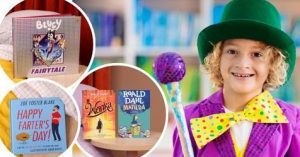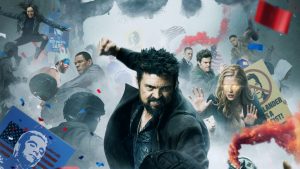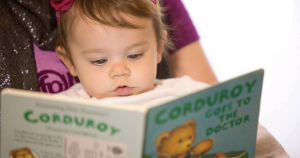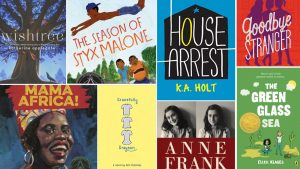What If Boys Just like the “Unsuitable” Sort of Historical past? | American Enterprise Institute
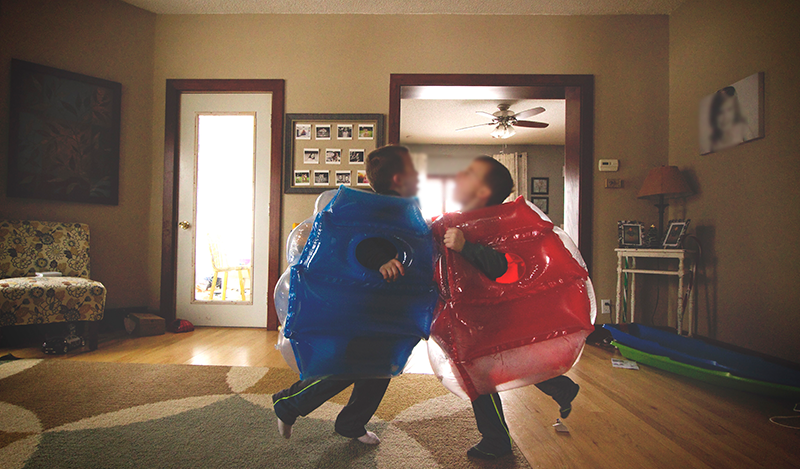
An Amazon field was on the porch the opposite day. (I get despatched a whole lot of books. It’s a cool perk.) I pulled out 5 colourful, outsized paperbacks. Nice Battles for Boys: The Korean Struggle. Nice Battles for Boys: The American Revolution. Nice Battles for Boys: WW2 in Europe. And two extra. I discovered the titles delightfully countercultural.
I imply, who writes about army technique right this moment? Who unabashedly markets stuff to boys? The books, all printed between 2014 and 2022, are authored by historical past instructor Joe Giorello. All of them run about 150 to 250 pages with easy textual content, anecdotes, photos, maps, and solutions for additional studying.
Having by no means heard of the collection, I used to be curious how these books have been faring within the bigger world. The reply? Very properly. On Amazon, on the time of this writing, Giorello’s quantity on WWII in Europe ranked #2 in “Kids’s American Historical past of 1900s.” His quantity on the Civil Struggle was #1 in “Kids’s American Civil Struggle Period Historical past Books.” His ebook on the Revolutionary Struggle was #1 in “Kids’s American Revolution Historical past.” There are millions of enthusiastic, five-star opinions.
And but, like I stated, I’d by no means heard of Giorello. I couldn’t discover a single point out of him after I searched College Library Journal, Training Week, the Nationwide Council for the Social Research, or the Nationwide Council for Historical past Training. As finest I can inform, he’s self-published. The tales are attention-grabbing, however the narrative is fairly rote, with no gimmickry or multimedia pizzazz. It’s simply workmanlike, accessible historical past. For example, the chapter on “The Battle of Britain” in WW2 in Europe begins:
By June 1940, Germany had achieved a victory in Norway, however the win got here at a steep value. The battle had broken or sunk over half of Germany’s warships.
This loss was essential. Hitler desperately needed to beat Nice Britain, however with half his fleet out of fee, the German navy was no match for the highly effective British Royal Navy.
Hitler determined he would conquer Britain by air.
So, what’s happening? Why have these books been such a silent success? Probably the most salient rationalization stands out as the frank, unapologetic choice to supply books about “nice battles for boys” in an period when that’s largely absent from school rooms. This will likely merely be the form of historical past that a whole lot of boys are desperate to examine. In fact, even penning that sentence can really feel remarkably risqué these days, which can be a giant a part of the issue.
It acquired me pondering. My elementary-age youngsters have introduced house or been assigned plenty of kids’s books on historical past. Most are centered intently on social and cultural historical past. I’ll be trustworthy. At the same time as somebody who’s all the time been an avid reader, I discover a whole lot of that stuff fairly tedious. As a child, I discovered books in regards to the Battle of Halfway or D-Day vastly extra attention-grabbing than grim tales of stripling angst, and I don’t suppose that makes me uncommon. Furthermore, it surprises nobody (besides the occasional ideologue) to study that women typically seem extra in fiction than boys—or that boys are inclined to favor studying about sports activities, struggle, comedy, and science fiction, whereas women favor narratives about friendship, animals, and romance.
In the present day, after I peruse classroom libraries, really useful ebook lists, or stuff like the summer season studying solutions from the American Library Affiliation, I don’t see a lot that appears calculated to enchantment to boys.
One motive that boys learn lower than women could also be that we’re not introducing them to the sorts of books they could like. There was a time when faculties actually did commit an excessive amount of time to generals and well-known battles, however we’ve massively overcorrected. Certainly, I discover that too many “numerous, inclusive” studying lists function authors who might range by race and gender however overwhelmingly have a tendency to jot down introspective, therapeutic tales that learn like an adaptation of an particularly heavy-handed afterschool particular.
Now, my level is not that children ought to learn this relatively than that. Faculties ought to be exposing all college students to extra fiction and nonfiction, with assorted matters and themes. If that requires assigning extra studying, properly, good.
Then there are the well-meaning educators and advocates who strategy ebook choice as an extension of social and emotional studying. Heck, whereas penning this column, I acquired an e-mail selling the nonprofit I Would Somewhat Be Studying, which makes use of “trauma responsive literacy assist and social-emotional studying to assist kids.” I’m positive it’s a stunning group, however I’d be shocked if any of the books in query function stoic virtues or manly braveness. In spite of everything, the remedy/SEL set has labored assiduously to outline conventional masculinity as “poisonous.” And all this could alienate youngsters who discover the therapy-talk unduly treasured or rife with grownup pathologies.
I hear from loads of educators who say they’re reluctant to speak in regards to the wants of boys for concern of being labeled reactionary. However extra boys may develop a style for studying in the event that they encountered extra of the sorts of books they’d wish to learn. I’d take extra significantly those that speak about inclusive studying lists if their ardour prolonged to the well-being of these college students bored by social justice-themed tracts and if they really appeared extra invested in turning each child into an avid reader, which requires a various mixture of books out there—together with these about “nice battles for boys.”
